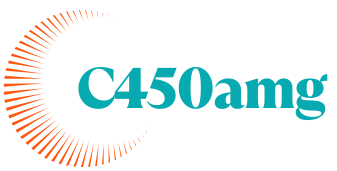Table of Contents
ToggleImagine waking up, grabbing a cup of coffee, and diving into a world where you create digital wonders, all from the comfort of your couch. Sounds pretty great, right? Enter the online web development degree: your gateway to a fulfilling career where creativity meets technology, and you don’t even have to wear pants. In this text, we’ll explore what a web development degree encompasses, the various types available, and how pursuing your education online can open doors to lucrative job prospects. So, if you’re ready to turn your passion for all things tech into a career, read on.
What Is a Web Development Degree?

A web development degree is a formal certification focusing on the skills required to build and maintain websites and applications. Typically, this program dives into various programming languages, design principles, and user experience strategies. It equips graduates with the knowledge to create interactive, responsive, and visually appealing websites.
This degree usually blends technical skills, like coding in HTML, CSS, and JavaScript, with creative elements, ensuring students can handle everything from backend development to frontend design. Whether it’s a certificate, an associate, or even a bachelor’s degree, each level prepares graduates for the dynamic field of web development.
Types of Web Development Degrees Available
There’s a buffet of options when it comes to online web development degrees, catering to a variety of career goals and academic backgrounds:
- Certificate Programs: These short-term courses provide foundational knowledge, often focusing on specific technologies or skills, perfect for those wanting to enter the workforce quickly.
- Associate Degrees: Typically taking two years to complete, these degrees offer a more comprehensive education, blending technical and general education courses. Graduates often find entry-level positions in web development.
- Bachelor’s Degrees: A four-year program that covers a broad range of topics, including database management and web design practices. Graduates are more competitively positioned for advanced roles.
- Master’s Degrees: For those aiming for leadership positions, a master’s degree deepens expertise, emphasizing project management and advanced programming.
Benefits of Obtaining a Web Development Degree Online
Choosing to pursue a web development degree online comes with a slew of benefits. Flexibility tops the list: students can balance work, life, and study without commuting to a traditional classroom. Besides that, online programs often feature a self-paced learning model, allowing for personal scheduling.
Cost-effectiveness is another huge plus. Online degrees can often be more affordable than their on-campus equivalents, with savings on materials, housing, and transportation. Plus, students have access to a broader array of programs and schools nationwide, ensuring they can find the right fit without geographical limitations.
Prerequisites and Admission Requirements
While prerequisites can vary by institution, most online web development programs typically require a high school diploma or GED. Some may ask for previous coursework in math or computer science, while others will offer foundational courses for those who need them.
As for admission requirements, students usually need to submit an application, transcripts from previous education, and sometimes a personal statement outlining their career goals. Some programs may also require an interview or a portfolio showcasing past projects, especially for more advanced courses.
Curriculum Overview for Online Web Development Programs
An online web development degree curriculum is designed to provide a robust education that blends both theory and practical application. Students can expect to encounter subjects such as:
- Web Programming Languages: Courses covering HTML, CSS, JavaScript, and frameworks like Angular or React.
- Database Management: Understanding how data is stored and accessed through SQL and integration with web applications.
- User Interface Design: Focusing on creating engaging, user-friendly layouts.
- Web Security Practices: Learning to protect websites from security threats and vulnerabilities.
- Project Management: Equipping students with tools to effectively manage development projects from start to finish.
Career Prospects for Graduates
Graduates with a web development degree can enjoy a wide range of career opportunities. Positions include:
- Web Developer: Creating and maintaining websites, focusing on both design and functionality.
- Frontend Developer: Specializing in the elements that users interact with directly.
- Backend Developer: Working on the server-side, managing databases and application logic.
- Full-Stack Developer: A versatile role encompassing both frontend and backend development.
The demand for skilled web developers continues to climb as more businesses shift online, making this a promising field for new graduates.
Tips for Choosing the Right Online Web Development Program
Selecting the right program can significantly impact one’s educational journey and career. Here are some helpful tips:
- Accreditation: Ensure the program is accredited, as this can affect transferability of credits and recognition by employers.
- Curriculum Strength: Look for a curriculum that aligns with personal career goals, whether that’s a specific programming language or an emphasis on user experience.
- Support and Resources: Evaluate the level of support offered, such as access to mentors, career services, and networking opportunities.
- Cost and Financial Aid: Consider the overall cost and check for financial aid options, scholarships, or payment plans.




